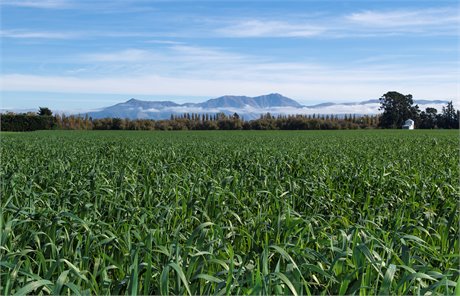
Media release – A new study released today shows farming oats in New Zealand is much more sustainable than dairy, but dairy is still more profitable.
The study found that oat farming releases only 7% of the greenhouse gases that are emitted by dairy farming on a per litre of milk basis and that land use for farming oats is more efficient, with oats using 70% less land than dairy to produce a litre.
Commissioned by Boring Oat Milk and The Agricultural and Marketing Research and Development Trust (AGMARDT) and prepared by the Agribusiness Group and Left Field Innovation, the report compared New Zealand arable and dairy farm systems in Otago and Southland, where most oats are grown.
Boring Oat Milk founder Morgan Maw says the report was created to get data on the impact of oat farming in the New Zealand context, as most data currently used is from international studies.
“The study was undertaken to provide an environmental impact assessment of oat milk production at the farm level in New Zealand, as this data didn’t previously exist, and to explore how an oat crop could complement a local regenerative agricultural system,” she says.
Maw says the data substantiated what they already knew, that farming oats is a lot more environmentally friendly than dairy.
“It’s common knowledge that arable farming emits less greenhouse gases than dairy, however now we have concrete evidence about its impact in Aotearoa.”
While the study showed that oat farming is better for the environment than dairy farming, it also showed that dairy farming is still more lucrative, with the straight dairy model offering twice the return of the highest earning arable model.
If dairy farmers were to include 10% oats into their traditional system, they would require 21% less land and their greenhouse gas emissions would be reduced by 7%, however their financial returns would be 12% less.
Maw says the considerably higher returns from dairy means farmers are less likely to move to arable farming, which makes moves to sustainable alternatives less appealing.
“It’s the age-old issue, where industries like oil, forestry and dairy have big financial returns but also the biggest environmental impacts,” she says,
When one of the only justifications for dairy farmers to combine their land use with oats is to reduce greenhouse gas, but at the cost of a profit, it makes it challenging to convince farmers to change.
“This is one of the biggest hurdles we face in reversing climate change, but at some stage we have to put the planet before profit, as the true cost to our future generations can’t yet be determined,” says Maw.
Boring Oat Milk will continue to encourage people to make more environmentally friendly choices where they can, and will help with education around climate change in New Zealand by undertaking studies such as these.
“It’s about giving consumers the information to empower them to make more environmentally conscious buying decisions. The more people who start choosing plant-based alternatives, the more profitable arable farming will become,” she says.
- SEO Powered Content & PR Distribution. Get Amplified Today.
- Platoblockchain. Web3 Metaverse Intelligence. Knowledge Amplified. Access Here.
- Source: https://www.carbonnews.co.nz/story.asp?storyID=26899